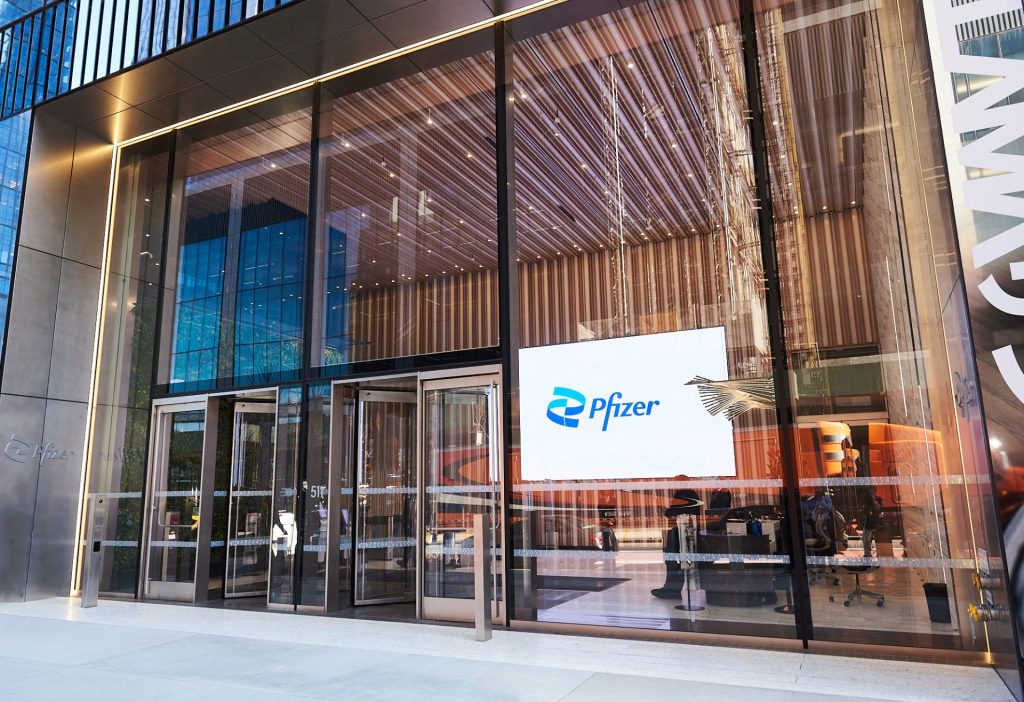Pfizer Celebrates 175 Years Of Healthcare Innovation

With Focus On Legacy And Future Breakthroughs
Pfizer is committed to driving healthcare innovation, improving healthcare access, and continuing its legacy of transformative medical breakthroughs for years to come.
This is the key messaging delivered by Patrick van der Loo, Regional President for the Middle East, Russia, and Africa (MERA) region, as the New York-headquartered global biopharmaceutical giant commemorates its 175th anniversary this year.
Speaking in Dubai, United Arab Emirates (UAE), on June 11, 2024, Loo highlighted the company’s groundbreaking achievements and revealed its ongoing commitment to helping shape the healthcare landscape globally, including the MERA region.
“As we look to the future, Pfizer is far from complacent. We are thrilled to unveil our vision to harness the power of artificial intelligence to improve patient outcomes, expand our oncology portfolio, and enhance vaccine accessibility across the MERA region. These are not mere aspirations but a firm commitment to a future where healthcare is more accessible and innovative than ever,” Loo affirmed.
1849-2024
Established in 1849 by visionary German immigrant cousins Charles Pfizer and Charles Erhart, Pfizer embarked on its journey in Brooklyn, New York. Since its inception, the company has been a beacon of medical innovation, spearheading breakthroughs in various therapeutic areas.
Notably, Pfizer’s early focus on antibiotic development and mass fermentation techniques during World War II propelled it onto the international stage, with penicillin production marking a significant milestone in its history.
According to Loo, Pfizer’s global expansion in the 1950s has improved healthcare worldwide and left an indelible mark on the global health landscape. With facilities established across continents, including Africa, the Middle East, and, more recently, the UAE, Pfizer has been instrumental in delivering life-saving medications and fostering healthcare innovation in diverse communities.
Presenting an overview of Pfizer’s diverse portfolio, Loo reiterated Pfizer’s leading role in developing vital therapeutics and vaccines across six key areas: oncology, internal medicine, vaccines, rare diseases, infectious diseases, and immunology.
Covid-19 Pandemic
Noteworthy products such as anti-cholesterol medications and mRNA vaccines, which played a pivotal role during the recent Covid-19 pandemic, underscore Pfizer’s dedication to transformative medical solutions, instilling confidence in the company’s future direction, said Loo.
Emphasising the importance of access to healthcare, Loo also outlined Pfizer’s extensive efforts to ensure patients worldwide can benefit from its products. He added that through numerous access programmes spanning rare diseases, inflammation, immunology, and oncology, Pfizer has facilitated medication access for thousands of patients across various regions, including the Middle East and Africa.

In addition to its commitment to healthcare access, Loo highlighted Pfizer’s strategic collaborations and partnerships to address global health challenges. Initiatives such as antimicrobial research and infrastructure development underscore Pfizer’s dedication to tackling pressing healthcare issues in partnership with governments and healthcare professionals.
Moreover, Pfizer’s commitment to fostering talent and diversity within its organisation was underscored, with initiatives to promote gender diversity and leadership development highlighted as key priorities for the company’s future growth and success.
MERA Region
This commitment reflects Pfizer’s values and inspires hope for a more inclusive and diverse future in the healthcare industry, said Loo, explaining that Pfizer has been operating across 75 countries in the MERA region for over 60 years.
“Rooted in scientific innovation, our extensive portfolio addresses critical health challenges specific to the region [MERA], ensuring that every patient, regardless of their location, can benefit from life-saving medicines.,” Loo stated.

Pfizer, with its three manufacturing plants located in Algeria, Tunisia and Morocco and a distribution hub in the UAE, plans to launch 35 new healthcare solutions in 2024,
Loo said Pfizer has launched ‘An Accord for a Healthier World’ initiative, which provides the company’s entire portfolio of vaccines and medications to low-income markets on a non-profit basis. This initiative benefits 1.2 billion people in 45 lower-income countries globally.
Egypt Collaboration
In Egypt, Pfizer has partnered with Haya Karima, a national initiative to improve vulnerable Egyptians’ living standards. The partnership upskills healthcare professionals in rural areas and provides access to innovative treatments in underprivileged communities, aligning with Egypt’s sustainable development strategy.
In Morocco, Pfizer empowers the African nation’s healthcare infrastructure by combating antimicrobial resistance and advancing universal health coverage.
Pfizer has signed an MoU with the Department of Health in Abu Dhabi, UAE, to advance research on rare diseases like sickle cell disease. The aim is to improve patient outcomes while elevating Abu Dhabi’s position as a global hub for life sciences.
“In our commitment to oncology, we are dedicated to delivering breakthrough therapies across various cancers to transform patient lives globally. Additionally, our efforts in internal medicine aim to address cardiovascular and metabolic diseases. At the same time, our long-standing expertise in vaccines has played a pivotal role in advancing public health across the MERA region and beyond,” said Loo.
Pfizer is also dedicated to tackling the critical needs of rare disease patients worldwide, combating infectious diseases and antimicrobial resistance, and developing innovative treatments for chronic immune diseases.
Featured image: Patrick van der Loo speaking in Dubai, UAE, on June 11, 2024, about Pfizer’s 175th anniversary. Credit: Arnold Pinto













